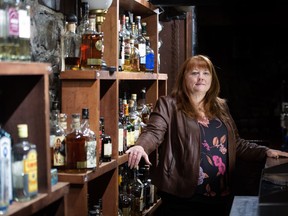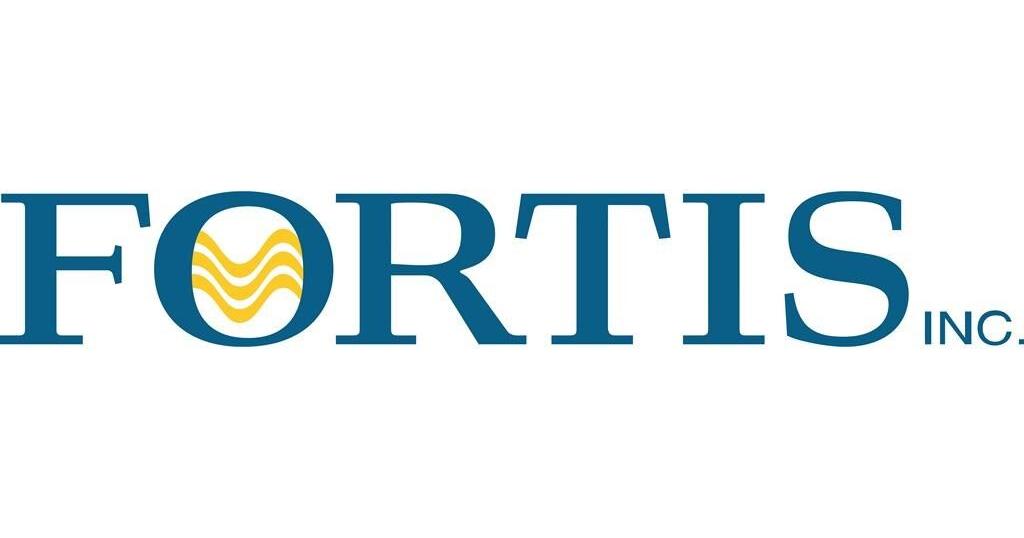Canada’s restaurant industry is bracing for the biggest jump in the country’s alcohol excise duty in more than 40 years, spurring warnings the tax hike could force some bars and restaurants out of business.
Business
Restaurants and bars across Canada brace for biggest alcohol tax jump in 40 years

Bar and eatery operators across Canada have endured lockdowns, labour shortages, supply chain mayhem and soaring costs for everything from payroll to cooking oil. Rising inflation has also softened demand as some consumers stay home to save money.
“Many of us haven’t recovered from the pandemic and now they want to raise this tax,” she said. “It’s hard to get blood out of a turnip. We’ll see more restaurant closures if this goes ahead.”
The federal beverage alcohol duty is set to increase 6.3 per cent on April 1.
While the duty is separate from provincial liquor board fees and sales taxes, it ultimately filters down to higher prices for consumers, said CJ Helie, the president of Beer Canada.
“It’s imposed at the point of production and paid by the manufacturer, which means it’s built into the price of the product and magnified as it goes through the supply chain from the distributor to the retailer,” he said.
The automatic annual tax increase is a long-standing irritant for the beverage industry, but was “digestible” when inflation was around two per cent, Helie said.
But this year’s adjustment is more than triple the usual increase and should be reconsidered given the state of the industry, he said.
Some brewers may try to absorb the higher cost by delaying investment plans like new hiring but he said there’s only so much they can do before passing the tax hike along.
“They’ll try to recoup what they can through the wholesale price but it could impact demand and end up costing them in lower sales volumes anyway,” Helie said.
Alcohol excise duty rates are adjusted by law on an annual basis to account for inflation, Adrienne Vaupshas, press secretary of Finance Minister Chrystia Freeland, said in an email.
The increase next month works out to less than a penny on a can of beer, she added.
But industry group Restaurants Canada said it will cost Canada’s food-service industry about $750 million a year, with the average casual dining restaurant expected to pay an extra $30,000 towards alcohol.
At the retail level, the impact may be more subtle. Though added on top of other price increases, consumers may notice higher prices.
The Liquor Control Board of Ontario said customers may experience a price increase on select products by the end of April if manufacturers pass along the federal excise tax increase.
A spokeswoman for the Nova Scotia Liquor Corp. said beverage alcohol prices are increasing by just over three per cent overall next month.
But these increases are due to a number of factors, including higher excise taxes and the rising cost of raw goods such as bottles, cans, barley, and labels, NSLC spokeswoman Allison Himmelman said in an email.
In British Columbia, a spokesperson for the BC Liquor Distribution Branch said it’s not possible to confirm what level of price increase consumers may or may not see.
“Each liquor supplier will decide whether or not to increase its wholesale price to account for the increase it must pay in excise duty,” Robin Fraser said in an email.
Advertisement 7
Article content
“Then retailers will make the decision on whether to adjust the prices for consumers for those products,” Fraser said. “It is up to each retailer to determine if, and by how much, to raise its prices.”
Alcohol beverage prices rose 5.7 per cent in February compared with a year before, according to Statistics Canada.
While that’s only slightly higher than the overall inflation rate of 5.2 per cent last month, the tax hike in April along with other increases could see the alcohol inflation rate rise faster than general inflation later this spring.
“Our industry is struggling and we can’t absorb more increases,” said Olivier Bourbeau, vice-president of federal affairs with Restaurants Canada. “Restaurant margins are always thin but right now they’re around two to three per cent.”
This is in part because restaurants are absorbing some of the higher costs due to inflation, Bourbeau said.
Indeed, while grocery prices recorded a 10.6 per cent year-over-year increase in February, restaurant food prices only rose 7.7 per cent, Statistics Canada figures show.
Also, alcohol beverages purchased from stores rose 6.0 per cent in February, while alcoholic beverages served in licensed establishments increased only 4.3 per cent, the agency said.
“Restaurants can’t absorb any more price increases,” Bourbeau said. “But if they pass those costs to customers it could hurt their business.”
“At the end of the day, consumers will only pay so much before they start to cut back.”

Business
Cineplex reports $24.7M Q3 loss on Competition Tribunal penalty

TORONTO – Cineplex Inc. reported a loss in its latest quarter compared with a profit a year ago as it was hit by a fine for deceptive marketing practices imposed by the Competition Tribunal.
The movie theatre company says it lost $24.7 million or 39 cents per diluted share for the quarter ended Sept. 30 compared with a profit of $29.7 million or 40 cents per diluted share a year earlier.
The results in the most recent quarter included a $39.2-million provision related to the Competition Tribunal decision, which Cineplex is appealing.
The Competition Bureau accused the company of misleading theatregoers by not immediately presenting them with the full price of a movie ticket when they purchased seats online, a view the company has rejected.
Revenue for the quarter totalled $395.6 million, down from $414.5 million in the same quarter last year, while theatre attendance totalled 13.3 million for the quarter compared with nearly 15.7 million a year earlier.
Box office revenue per patron in the quarter climbed to $13.19 compared with $12 in the same quarter last year, while concession revenue per patron amounted to $9.85, up from $8.44 a year ago.
This report by The Canadian Press was first published Nov. 6, 2024.
Companies in this story: (TSX:CGX)
The Canadian Press. All rights reserved.
Business
Restaurant Brands reports US$357M Q3 net income, down from US$364M a year ago

TORONTO – Restaurant Brands International Inc. reported net income of US$357 million for its third quarter, down from US$364 million in the same quarter last year.
The company, which keeps its books in U.S. dollars, says its profit amounted to 79 cents US per diluted share for the quarter ended Sept. 30 compared with 79 cents US per diluted share a year earlier.
Revenue for the parent company of Tim Hortons, Burger King, Popeyes and Firehouse Subs, totalled US$2.29 billion, up from US$1.84 billion in the same quarter last year.
Consolidated comparable sales were up 0.3 per cent.
On an adjusted basis, Restaurant Brands says it earned 93 cents US per diluted share in its latest quarter, up from an adjusted profit of 90 cents US per diluted share a year earlier.
The average analyst estimate had been for a profit of 95 cents US per share, according to LSEG Data & Analytics.
This report by The Canadian Press was first published Nov. 5, 2024.
Companies in this story: (TSX:QSR)
The Canadian Press. All rights reserved.
Business
Electric and gas utility Fortis reports $420M Q3 profit, up from $394M a year ago

ST. JOHN’S, N.L. – Fortis Inc. reported a third-quarter profit of $420 million, up from $394 million in the same quarter last year.
The electric and gas utility says the profit amounted to 85 cents per share for the quarter ended Sept. 30, up from 81 cents per share a year earlier.
Fortis says the increase was driven by rate base growth across its utilities, and strong earnings in Arizona largely reflecting new customer rates at Tucson Electric Power.
Revenue in the quarter totalled $2.77 billion, up from $2.72 billion in the same quarter last year.
On an adjusted basis, Fortis says it earned 85 cents per share in its latest quarter, up from an adjusted profit of 84 cents per share in the third quarter of 2023.
The average analyst estimate had been for a profit of 82 cents per share, according to LSEG Data & Analytics.
This report by The Canadian Press was first published Nov. 5, 2024.
Companies in this story: (TSX:FTS)
The Canadian Press. All rights reserved.
-

 News15 hours ago
News15 hours agoVoters back Nebraska’s ban on abortions after 12 weeks of pregnancy and reject a competing measure
-

 News16 hours ago
News16 hours agoJustin Trudeau congratulates Donald Trump on his U.S. presidential win
-

 News16 hours ago
News16 hours agoFinal day for candidate nominations in Nova Scotia election campaign
-

 Real eState16 hours ago
Real eState16 hours agoGreater Toronto home sales jump in October after Bank of Canada rate cuts: board
-

 Economy16 hours ago
Economy16 hours agoTrump’s victory sparks concerns over ripple effect on Canadian economy
-

 News16 hours ago
News16 hours agoCanadanewsmedia news November 06, 2024: Trump declares victory and secures comeback
-

 News15 hours ago
News15 hours agoMurder-suicide in Cole Harbour, N.S., was intimate partner violence, police say
-

 News3 hours ago
News3 hours agoTrudeau, Freeland embrace a second Trump presidency |





















